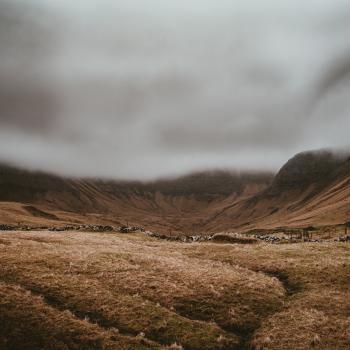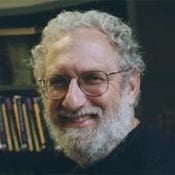"Environmentalists," said Aldo Leopold, "walk alone in a world of wounds." I'm not sure about the "alone" part, but a "world of wounds" sounds right. From the disappearing rainforest to the hundreds of toxic chemicals in the blood of newborns, from one species driven extinct every ten minutes to the frightening levels of cancer in American children, the wounds are all around us.
Responding in a spiritual way to all this is, to say the least, not easy. Partly that is so because spirituality encourages virtues that are particularly tested in the face of a uniquely unprecedented global threat.
Consider, for a start, the virtue of mindfulness—the kind of thing we are taught to develop through meditation, looking at reality "as it is," and the creation of a solid, rock-steady awareness of ourselves and of the world. In the face of environmental issues this means knowing what is going on by being well informed (and the internet makes all the dreadful information remarkably accessible—try this list of the "100 best environmental websites.") And it also means being mindful of the painful emotions all this knowledge brings out in us: fear, despair, anger at "those responsible," and the numbness that comes when we avoid or deny the ever growing reality of devastation.
Next, however, spirituality offers—or suggests, at any rate—a feeling of peacefulness: acceptance of our fate, appreciation for what we have, gratitude for the beauties of life. Yet how are we to feel peaceful in the face of a clear cut forest, a polluted ocean, or the cancer ward at the local children's hospital? How are we to feel good in the face of all that is so bad? It is one thing to be peaceful and accepting in a tastefully decorated mediation room in one's house, in a nicely appointed church with the sun streaming through stained glass windows, or at a yoga retreat center in Costa Rica. In these places peacefulness comes, if not easily, at least without the lurking sense of doom that we might well feel if we were on a boat looking at the Great Pacific Garbage Patch: a stew of plastic refuse in the eastern Pacific that is variously estimated as "only" as big as Texas or actually as large the entire U.S. Is peacefulness possible as we hear the stories of refugees from development—such as the native tribes whose water and land are poisoned from oil development in places like Peru or Nigeria? What would it even mean to feel accepting or grateful in the face of such realities?
Finally, there is compassion. As a feeling this is a heart-felt desire that (in the Buddhist formula) all beings might be at peace, be happy, and be free from suffering. As a form of life, it means a gentle, persistent kindness extended to all. The difficulty here is that while most of us contribute to the current environmental madness to some extent (by over consuming, for example), some of us are much more responsible than others. The mercenaries who shoot natives resisting polluting oil extraction, the corporate CEOs who smilingly lie about the real effects of their products, the public relations firms who knowingly try to confuse the public about the science of global warming or pesticides, the bought politicians who cut special deals for toxic industries—these people are responsible for a kind of long-distance, slow motion murder, on humans and on countless other species as well. How are we to feel compassion for them?
Mindfulness, peacefulness, compassion—and finally, God. In a way, this is just the Problem of Evil all over again: where is God when all this is happening? But in another sense it is more immediate than any theological wrangling over God's infinite powers, human freedom, and the like. It is the question of how we are to feel God's presence—or indeed any authentic spiritual emotion—as we behold so much needless suffering. With or without belief in God, as a Jew or a Christian, a Buddhist, pagan, or free-lance eclectic spiritual type like Thoreau, the dilemma is there.
How can I be at peace, how can I feel God's love, how can I feel at home—on this earth, at this time?
More than a decade ago I wrote a book exploring this question—A Spirituality of Resistance: Finding a Peaceful Heart and Protecting the Earth. The short answer I gave then was that peace in the face of ecocide was only possible though active social, political, and moral resistance. We can only be at home on this earth if we resist what is being done to it.
Over the next months I will continue to explore this problem and the associated questions that arise.
What is spirituality in the face of evil, loss, and our own complicity? Where is God when we need Him or Her most? How can we have compassion on the most guilty, be mindful of our own moral failings, and find peace in our struggles with the machineries of destruction?
3/17/2011 4:00:00 AM





